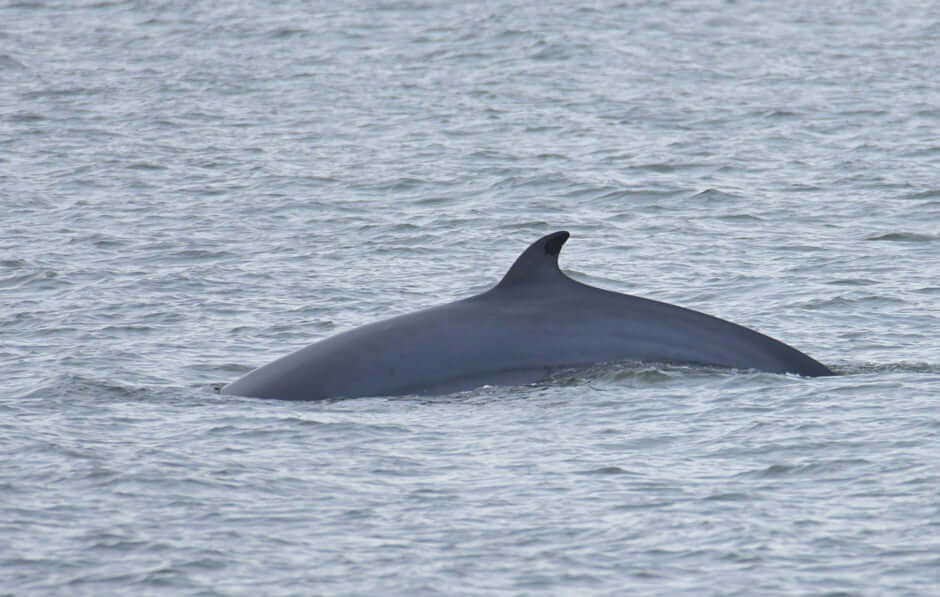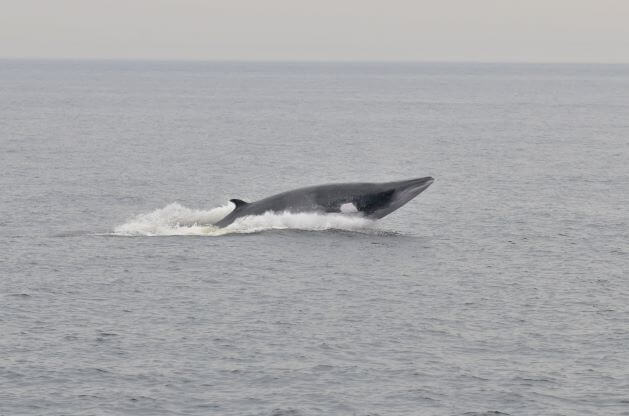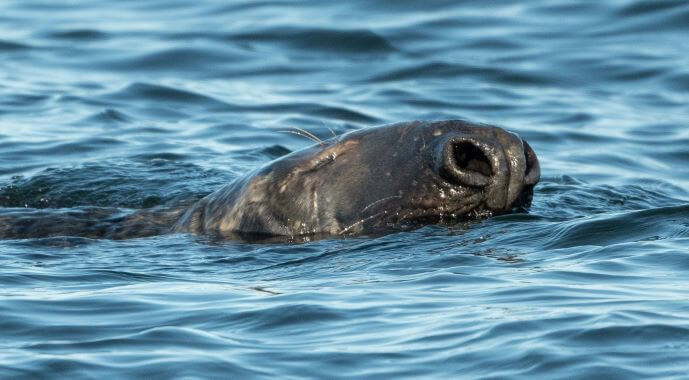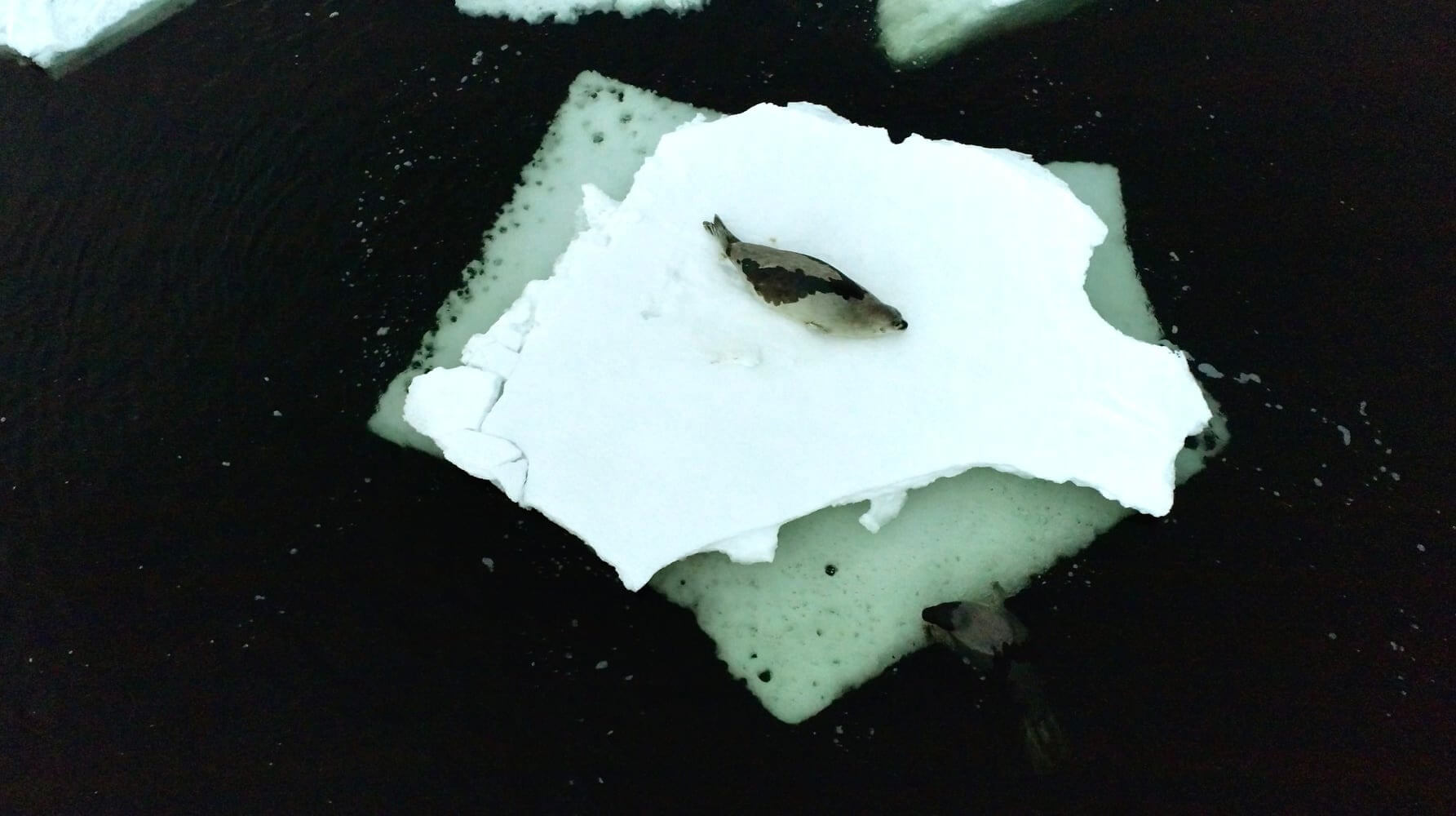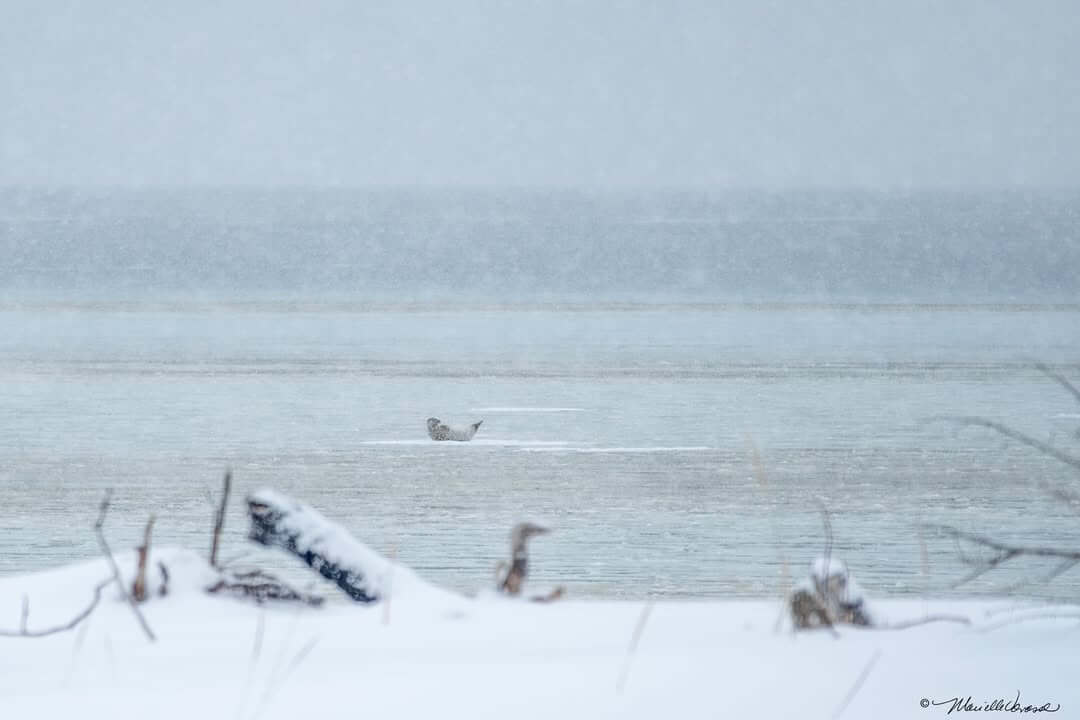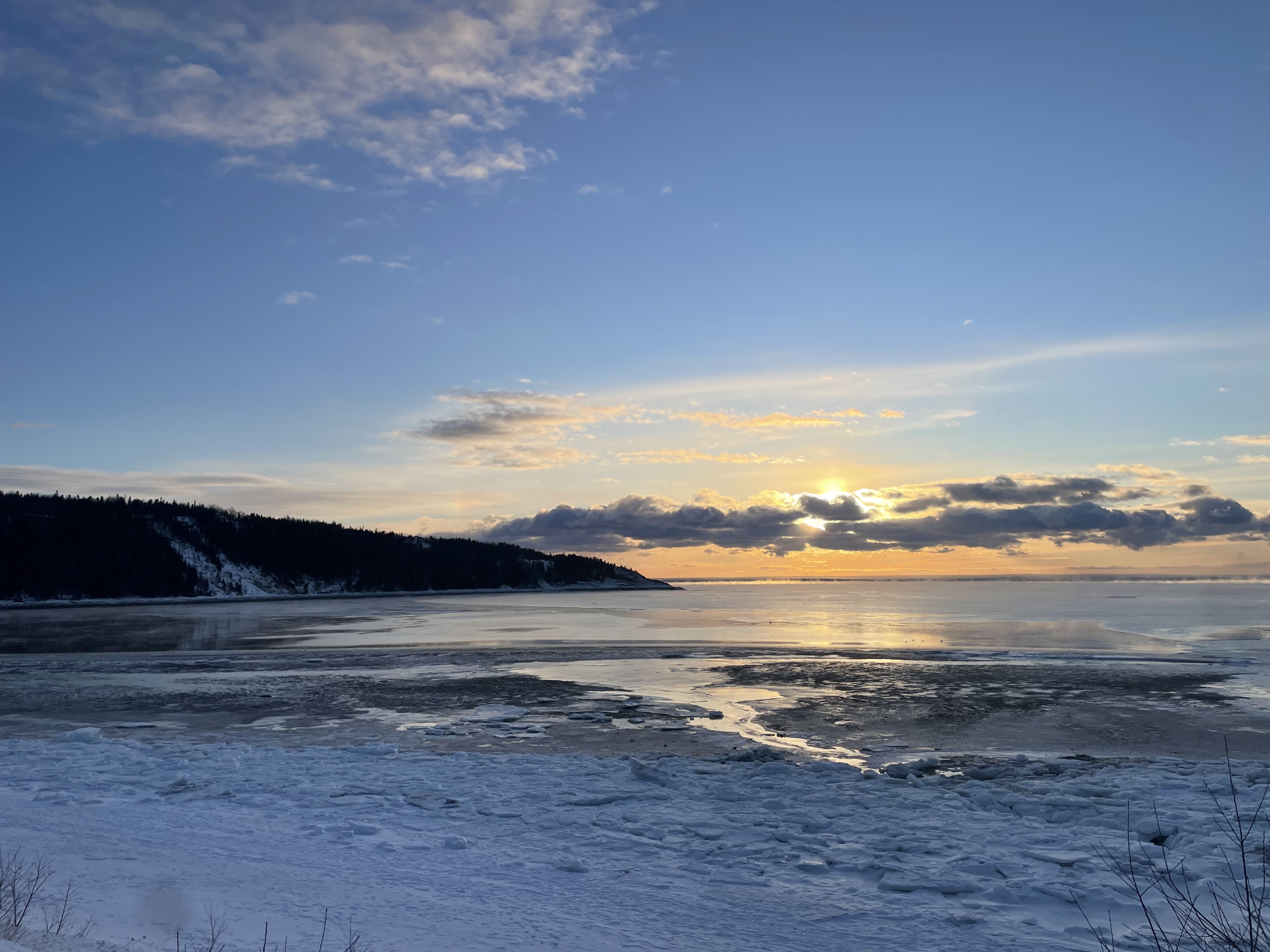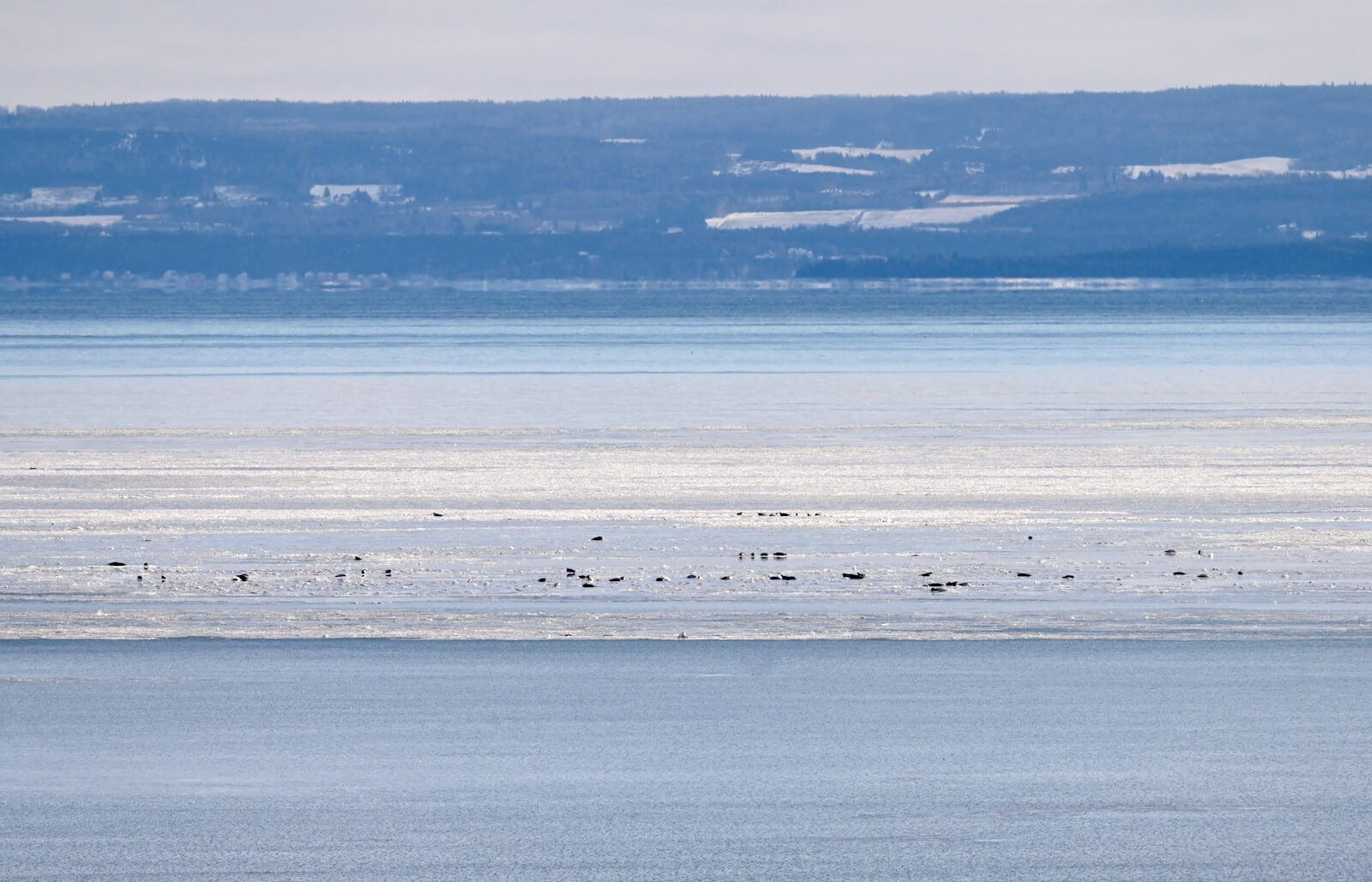They may be the smallest representatives of the rorqual family, but minke whales have been getting a lot of attention of late. This week, they’re all over the St. Lawrence – from the tip of the Gaspé to Saint-Irénée, from Les Bergeronnes to Longue-Pointe-de-Mingan – giving many observers their first thrills of the season!
Spring is finally knocking on our door and the excitement of summer is palpable. The mere sight of a small slate-grey back and a triangular dorsal fin energizes enthusiasts who can’t wait for the whales to return. “On Thursday, 21, I saw my first minke whale of the season from the village of Pointe-à-la-Frégate”, exclaims a local resident, who also mentions that two harbour seals have taken up residence in the bay in Saint-Yvon, alternating between swimming and resting in a ‘banana-like position.’
Feeding and acrobatics
At the other end of the river, a hiker follows a path snaking along the shore between Ruisseau-Jureux and L’Anse-au-Sac on April 25. Just 60 metres or so from shore, she sees a minke whale swim by, accompanied by several belugas. It is not so common to observe these animals so far upstream. Upon hearing the news, a resident of Saint-Irénée was saddened to have missed this occurrence: “Once I saw one rolling over and showing its head and its white and pink belly… It was very moving.” Indeed, feeding minke whales do occasionally come out of the water with their bellies and ventral grooves exposed, the latter showing a pinkish hue due to the dilated blood vessels.
Minke whales are also champion acrobats. “On Monday morning, off the coast of Franquelin, there were three minke whales feeding and one breaching. They were blowing like crazy and very active. They stayed there and foraged for a good hour,” marvels one enthusiast.
A myriad of white backs
The St. Lawrence belugas are back in the estuary after their winter migration. Tuesday morning at around 7:30 a.m., just as the first ferry was about to depart Rivière-du-Loup, a group of 4 belugas passed by in the dim morning light. Across the river in Saint-Irénée, they are more and more plentiful. “They’ve been back for two weeks now! I see one or two small white backs pass by regularly,” says a local resident.
In Quebec’s Haute-Côte-Nord region, it’s been a marine mammal parade. Posted at the lookout in Essipit, an observer sums up his encounters: “On April 22, I saw four belugas and one harp seal. The next day, I observed a large group of about 50 belugas and a burly grey seal. A few days later, on April 27, from the Bon-Desir campsite in Les Bergeronnes, I tallied one minke whale, one beluga and two harbour seals. Belugas were also reported several times this week off Tadoussac Bay and from the docks in Les Escoumins.
Thar she blows!
As for the larger rorquals, the week has been relatively quiet. Off Sept-Îles, for example, things have been rather calm. “Just two seals over a stretch of 100 kilometres,” reports Jacques Gélineau. But that’s probably for the better, as there are hundreds of pieces of fishing gear in the water at the moment! In Gaspé Bay, a few harbour seals are waiting for spring.
On April 23, a resident of Percé catches some movement in the water. She reports several dark backs between the cliff and Bonaventure Island. The group of cetaceans, whose identity remains undetermined, was heading south.
In closing, we have some exciting news from the tip of the Gaspé: “On Wednesday morning in Manche-d’Epée, I saw a huuuge and narrow spout… but by the time I lifted my binoculars, it was gone! I couldn’t tell if it was a fin whale or a blue whale. Either way, it’s a great way to kick off the season!”
Have you seen a whale or a seal?
Let us know by sharing details of your observation or photos at [email protected] or on our Facebook page.


